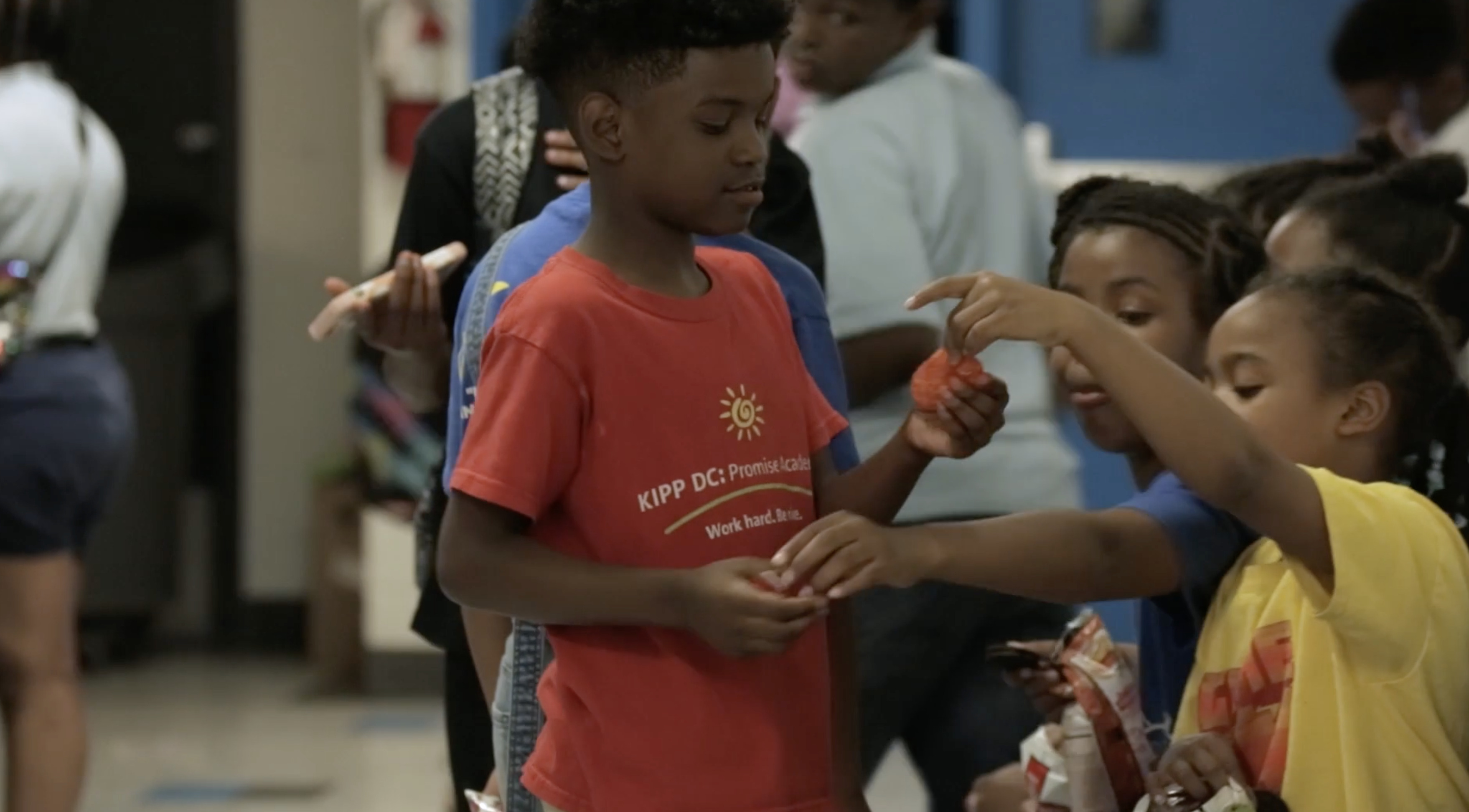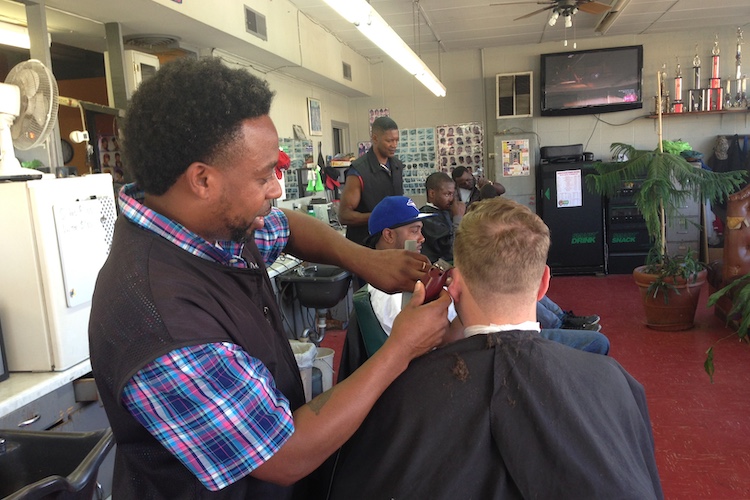Resources for K-12 Educators

Over the last fifty years, sociolinguists have described the structure and debated the origins of African American Language (AAL), and much of this work has been applied to factors related to the education of African American students, but also more broadly to the study of language variation in the classroom context. On this page, we gather together several resources for K-12 educators on the study of AAL (and other non-mainstream varieties of English) in the classroom, including links to videos, web links, and books.
You can also visit our Resources for Post-Secondary Educators for materials in the college/university classroom, and our Learn More about AAL page. This website is not exhaustive and will be updated regularly. If you have any videos or other resources you would like to see on this page, please send us a message at OnlineResourcesAAL@gmail.com.
Videos
Talking Black in America - Education
Be sure to check Talking Black in America’s viewer resources for discussion guides, discussion questions, PowerPoint slides, and more videos for students and educators!
The Ling Space - Interview with Anne Charity Hudley
Watch this video interview with Dr. Anne Charity Hudley about how language variation connects with education, the reciprocal relationship between teachers and linguists, and much more.
Web Links
Black Language Syllabus
In the Summer of 2020, Dr. April Baker-Bell and Dr. Carmen Kynard announced the creation of the Black Language Syllabus website. They state: “Our mission for the #BlackLanguageSyllabus is to celebrate the beauty of Blackness and Black Language, fight for Black Linguistic Justice, and provide critical intellectual resources that promote the collective study of Black Language. […] The #BlackLanguageSyllabus is for Black Language speakers who are looking to re-educate themselves about our mother tongue, academics and educators looking to reimagine their classroom curricula and pedagogies, and for anyone who is interested in learning about Black Language + Black liberation.”
In addition to a Black Language Magazine, which was first published in September 2020, the Black Language Syllabus website will include homework on Black Language and Young Adult Literature, Black Language and Hip Hop, and Black Language and Education.
Curricula for Teaching about AAL and Dialect Variation
Over the past several years, the Linguistics Program at North Carolina State University, in conjunction with the North Carolina Department of Public Instruction, has been at the forefront of research related to dialect education and awareness for both teachers and primary/secondary school students. The materials developed by these researchers include continuing education webinars, videos, lesson plans, and workbooks for K-12 educators. Each of these resources include lesson plans that directly address AAL, but were developed to address the roles of language variation in the classroom more broadly.
Voices of North Carolina Curriculum for 8th graders (developed by Jeffrey Reaser and Walt Wolfram)
- The multimedia Voices of North Carolina dialect awareness curriculum was developed by NC State faculty members Jeffrey Reaser and Walt Wolfram in 2005 and updated in 2007. The culmination of Wolfram’s work in the public schools over the past twenty years, Voices of North Carolina is the first state-based curriculum on language variation in the country. It is designed to help teachers better meet the standard course of study for 8th grade social studies and it is endorsed by the North Carolina Department of Public Instruction. The curriculum is designed to be teachable by teachers without any background in linguistics. The curriculum was proven to be highly successful in pilot runs in Johnston County, NC, and in Ocracoke, NC.
Linguistic Applications in the Classroom (developed by Nicolette Filson)
- Designed in 2011 by Nicolette Filson at NC State, this curriculum corresponds to the North Carolina Standard Course of Study for 9th Grade English Language Arts. It is designed to provide students with the necessary tools to describe the English language through understanding its evolution and critically thinking about the consequences of that change. Language can be a challenging aspect of the English education curriculum to teach; however, this material is designed particularly so teachers who may have minimal or no linguistic background can still be successful teaching this material. Each day of the curriculum is prefaced with basic information about the material for that day, the key concepts, and, if needed, the historical or social background of the topic.
Continuing Education Webinar Series
- Between February and April 2011, Jeffrey Reaser and Walt Wolfram hosted three hour-long webinars investigating dialect and language diversity in North Carolina, including "The Reality of Dialects", "Regional Dialects of NC", and "Social Dialects". These were designed for 8th grade social studies teachers, but were open to all teachers.
For a complete list of resources from NC State Linguistics, please visit their website.
Do You Speak American? For Educators - Do You Speak American? was a 2005 documentary series produced by PBS. On their companion website, there is plenty of information for educators, focused mainly on high school and college levels (available here), including specific curricula for the study of African American English in the classroom.
Linguistic Justice: Black Language, Literacy, Identity, and Pedagogy (2020)
April Baker-Bell
“Bringing together theory, research, and practice to dismantle Anti-Black Linguistic Racism and white linguistic supremacy, this book provides ethnographic snapshots of how Black students navigate and negotiate their linguistic and racial identities across multiple contexts. By highlighting the counterstories of Black students, Baker-Bell demonstrates how traditional approaches to language education do not account for the emotional harm, internalized linguistic racism, or consequences these approaches have on Black students’ sense of self and identity. This book presents Anti-Black Linguistic Racism as a framework that explicitly names and richly captures the linguistic violence, persecution, dehumanization, and marginalization Black Language-speakers endure when using their language in schools and in everyday life. To move toward Black linguistic liberation, Baker-Bell introduces a new way forward through Antiracist Black Language Pedagogy, a pedagogical approach that intentionally and unapologetically centers the linguistic, cultural, racial, intellectual, and self-confidence needs of Black students. This volume captures what Antiracist Black Language Pedagogy looks like in classrooms while simultaneously illustrating how theory, research, and practice can operate in tandem in pursuit of linguistic and racial justice.
A crucial resource for educators, researchers, professors, and graduate students in language and literacy education, writing studies, sociology of education, sociolinguistics, and critical pedagogy, this book features a range of multimodal examples and practices through instructional maps, charts, artwork, and stories that reflect the urgent need for antiracist language pedagogies in our current social and political climate.” (from routledge.com)
For more information: https://www.routledge.com/Linguistic-Justice-Black-Language-Literacy-Identity-and-Pedagogy/Baker-Bell/p/book/9781138551022
Understanding English Language Variation in U.S. Schools (2011)
Anne H. Charity Hudley and Christine Mallinson
“In today’s classrooms, students possess and use many culturally, ethnically, and regionally diverse English language varieties that may differ from standardized English. This book helps classroom teachers become attuned to these differences and offers practical strategies to support student achievement while fostering positive language attitudes in classrooms and beyond. The text contrasts standardized varieties of English with Southern, Appalachian, and African American English varieties, focusing on issues that are of everyday concern to those who are assessing the linguistic competence of students.” (From tcpress.com)
Understanding English Language Variation in U.S. Schools has an accompanying free mobile app, called Valuable Voices, which contains exercises and resources for educators and students. “The app provides 12 ready-to-implement exercises for students and educators — one a month, for a year’s worth of teaching — to build awareness of language and culture. The teaching exercises are geared toward secondary English but can easily be adapted for various grades and content areas.”
For more information: https://www.tcpress.com/understanding-english-language-variation-in-u.s.-schools-9780807751480
Check out a video from UMBC featuring Dr. Christine Mallinson talking about Understanding English Language Variation here.
We Do Language: English Language Variation in the Secondary Classroom (2014)
Anne H. Charity Hudley and Christine Mallinson
“Building on the authors’ highly acclaimed first collaboration, Understanding English Language Variation in U.S. Schools, this book examines the need to integrate linguistically informed teaching into the secondary English classroom. We Do Language features concrete strategies, models, and vignettes, as well as classroom materials developed by English educators for English educators. It is essential reading for anyone interested in learning about the role that language plays in the experiences of students, both in secondary and postsecondary environments.” (From tcpress.com)
The authors’ accompanying website includes several exercises and links for each chapter!
Dialects at School: Educating Linguistically Diverse Students (2017)
Jeffrey Reaser, Carolyn Temple Adger, Walt Wolfram, and Donna Christian
“Comprehensive and authoritative, Dialects at School reflects both the relevant research bases in linguistics and education and educational practices concerning language variation. The problems and examples included are authentic, coming from the authors’ own research, observations and interactions in public school classrooms, and feedback in workshops. Highlights include chapters on oral language, reading and writing in dialectally diverse classrooms, as well as a chapter on language awareness for students, offering a clear and compelling overview of how teachers can inspire students to learn more about language variation, including their own community language patterns.”
The companion website for Dialects at School contains a wealth of information, including discussion questions, links of interest, as well as activities and resources. (https://routledgetextbooks.com/textbooks/9781138777453/default.php)
Other People’s English: Code-Meshing, Code-Switching, and African American Literacy (2019)
Vershawn Ashanti Young, Rusty Barrett, Y’Shanda Young-Rivera, and Kim Brian Lovejoy
Other People’s English: Code-Meshing, Code-Switching, and African American Literacy presents an empirically grounded argument for a new approach to teaching writing to diverse students in the English language arts classroom. Responding to advocates of the “code-switching” approach, four uniquely qualified authors make the case for “code-meshing”—allowing students to use standard English, African American English, and other Englishes in formal academic writing and classroom discussions. This practical resource translates theory into a concrete road map for pre- and inservice teachers who wish to use code-meshing in the classroom to extend students’ abilities as writers and thinkers and to foster inclusiveness and creativity. The text provides activities and examples from middle and high school as well as college and addresses the question of how to advocate for code-meshing with skeptical administrators, parents, and students. Other People’s English provides a rationale for the social and educational value of code-meshing, including answers to frequently asked questions about language variation. It also includes teaching tips and action plans for professional development workshops that address cultural prejudices.” (From Parlor Press).
The authors have prepared an online appendix (available here) that includes mini-units on code-meshing.
